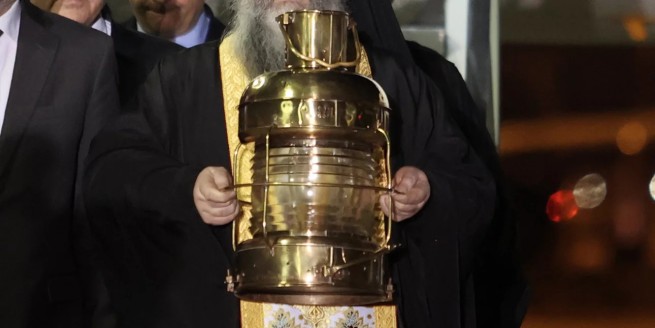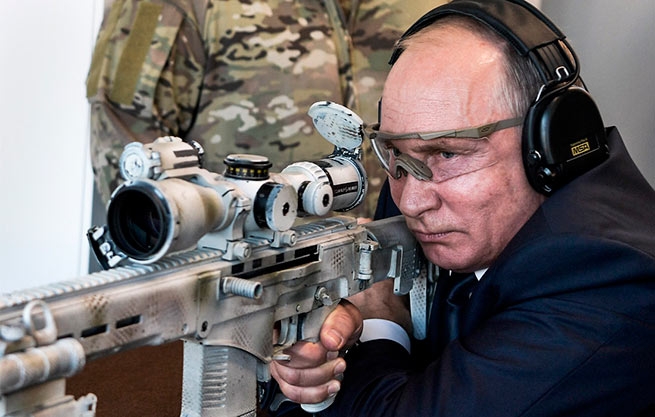Attack on the Kremlin became the culmination of similar ones, which have sharply intensified in recent days in Russian and Russian-controlled territory and can lead to unpredictable consequences.
Over the past few days, the Armed Forces of Ukraine have been hitting oil depots in Sevastopol and Taman with drones, railway tracks in the Bryansk region have been blown up twice, an airfield has been attacked there, and several incidents on a smaller scale have occurred.
However, despite this, attack on the Kremlinseems to have shocked the whole world. And now the main question is what will happen next, how the Russian Federation will respond, and what consequences the attack on the Kremlin will have in general. Because one of the last “red lines” seems to have been crossed, which puts Moscow in front of a serious fork in a series of decisions.
And the answer to this question depends on who launched this drone. This is discussed by the columnist of the Ukrainian edition A country.
In fact, there are two main versions on this score: Ukraine (which Russia is talking about) and a provocation by the Russian special services (which is already being hinted at in Kyiv).
1. Ukraine denies its participationbut supporters of this version, who are also in Kyiv (among those who applaud what happened) say that this is another powerful blow to the image of the Kremlin and a demonstration of the capabilities of the Ukrainian special services.
Yes, even Kyiv did not confirm the previous sabotage of the last days, but especially did not disown them. And the strike on the Kremlin, as a vivid symbolic action, fits into this series quite well. Especially on the eve of the parade in Moscow on May 9th. And also taking into account the fact that the start of the long-announced counter-offensive is being delayed, and the news vacuum needs to be filled with some kind of “victorious” news. And drone attacks on Russian facilities, and especially on the Kremlin, are quite suitable for this purpose.
As well as for “warming up” the information space and the growth of defeatist sentiments in the Russian Federation, if the offensive really begins in the near future.
In addition, many drones have recently been regularly shot down on approach to Moscow. This was preceded by a large-scale campaign in Ukraine to create “unmanned” troops and recruit drone operators. That is, it is clear that attempts to break through to the “main goal” could be made.
The head of the Office of the President of Ukraine, Yermak, posted fire lights on his telegram channel, and then removed them. And the former adviser to the OP, Arestovich, recently argued that Ukrainian drones were already flying near the Kremlin.
2. But some points call into question the “Ukrainian” version. The video, filmed at night, appeared only many hours later in Russian publics. If this was really an attack by Ukraine, then it is very strange that the Ukrainian special services did not bother to fix it and distribute it more quickly (even if through stuffing into Russian Telegram channels).
Further, the incident promptly prompted sufficiently detailed comments by Russian politicians of the first echelon (which may indicate that such comments were given the go-ahead).
Also, many Muscovites know that the Kremlin is an extremely protected object, and in its vicinity, amateur drones, in principle, do not take off due to increased electronic interference. Moreover, such interference works far beyond the Garden Ring. The Russian media themselves, reporting earlier on the drones found near Moscow, stated that they had not been shot down. This means that most likely the drones themselves fell from the effects of electronic warfare (which for some reason did not happen with the “Ukrainian” drone that hit the Kremlin).
And, finally, it is not clear where the Russian air defense was, which, according to the logic of things, should create something like a “dome” over the Kremlin and similar objects.
Of course, it cannot be ruled out that some high-tech drone was launched that bypassed all these obstacles. Or the Kremlin guards were extremely unprofessional.
One way or another, but in any case there will be some consequences for the Ukrainian-Russian war. Among which, two main directions are considered.
Firstly, “retribution strike” on Bankova, Rada or the government quarter in Kyiv. Since the beginning of the full-scale invasion, the Russians have never launched strikes against the President’s Office. Although there was a technical possibility – the Ukrainian air defense system cannot intercept Russian hypersonic missiles. There are usually three explanations for this.
The first is practical meaninglessness. According to media reports, Zelensky and his closest associates spend most of their time in Kyiv not in the office building, but in underground bunkers built during the Soviet era and designed for a nuclear strike.
Secondly, Putin allegedly counted on some kind of agreement with Zelensky (although this argument, obviously, was relevant only in the first two or three months of the war, when the negotiation process was still going on, then stopped).
Third, Putin promised not to encroach on Zelensky’s life. This, in particular, was stated by the Israeli ex-Prime Minister Bennett. The current strike on the Kremlin formally cancels this promise, even if it was given. At the same time, whether such a blow will follow, where and when – the question remains open.
Secondly, the Russian government may, using a blow to the Kremlin, come up with a kind of public “ultimatum” about further similar incidents. For example, on the use of nuclear weapons than to dramatically raise the stakes in a conflict. Or apply it without warning – which, of course, is the least likely scenario, since it threatens an uncontrolled escalation of the conflict with the involvement of other countries.
However, as already mentioned, a few Russian opposition resources are already writing that Russia has begun preparing a nuclear strike. But there is no other evidence for this. The only thing that Russia has so far heard on the “nuclear” topic is the statement of Deputy Defense Minister Alexander Fomin at a briefing for military attachés of “friendly countries”.
“On the basis of doctrinal documents, Russian approaches to nuclear deterrence were brought up. It was noted that the activities of the Russian Federation in the field of nuclear deterrence are of a defensive nature and are aimed at guaranteed protection of the sovereignty and territorial integrity of the country,” Fomin said.
However, these words were sounded in the context of the topic of US nuclear warheads in Europe, and not a strike on the Kremlin. But in general, the topic of “retribution” is being intensively pumped in the Russian information field. There is a whole series of messages on the Russian military telegram channels on the topic “Finally, the Kremlin has decided to give a tough answer.”
“The leadership of the Ministry of Defense of the Russian Federation decided to take some tough steps. This is the reason for the pause between the attack and its coverage in the media. There was a discussion for half a day, and when the decision was made, the media reported about the attack. And, judging by the statements of our tops, the decision has been made,” writes one of the Russian telegram channels supporting the war.
As far as the probability of a nuclear strike is concerned, such forecasts (which have been made periodically before), fortunately, have never come true so far. Including about the position of China, Moscow’s most important ally, regarding the inadmissibility of the use of nuclear weapons. And it is unlikely that Beijing’s position has changed after some drone strikes on the Kremlin.
But the fact that a certain large-scale strike (without nuclear weapons) the Russians will try to inflict cannot be ruled out. So it was after the explosion on the Crimean bridge, when the Russian army dealt a massive blow to the energy infrastructure of Ukraine, presenting it as an “act of retaliation.”
It is possible that even now the attack on the Kremlin will be used by Moscow as a pretext for some new military action. Moreover, the announcement of the attack on the residence of the President of the Russian Federation was indeed made with a long delay after the strike itself. That is, probably, some decisions were made during this time.
At the same time, there is another completely conspiracy theory that the attack on the Kremlin was organized by representatives of the so-called “party of war” in Russia in order to push Putin (who, according to this version, did not coordinate the strike) to some tough actions against Ukraine . Representatives of this “party” are already actively taking the Kremlin “weakly” – they say, “if Putin does not respond to a blow to the Kremlin, then he is quite a weakling.”
In this case, it is not a fact that the Russian authorities initially planned a “retaliation strike”, but they are actively pushed towards it, putting them in the position of “losing face” otherwise.
🚨🚨🇷🇺#Breaking: Putin ordered to “neutralize All senior officials, including Zelenskiy”. pic.twitter.com/DP3OHMArFO
— Terror Alarm (@Terror_Alarm) May 3, 2023
PS According to information, which, however, has not been confirmed, Russian President Vladimir Putin ordered the neutralization of all Ukrainian officials, including Volodymyr Zelensky. There are no details yet, but the account broadcasting the news is fully identified with the position of Kyiv.







More Stories
Shock: Drag queen will carry the Olympic flame in Paris
Greece consistently ranks last in the EU for media freedom
What influenced Greece’s decision to help Kyiv with weapons?